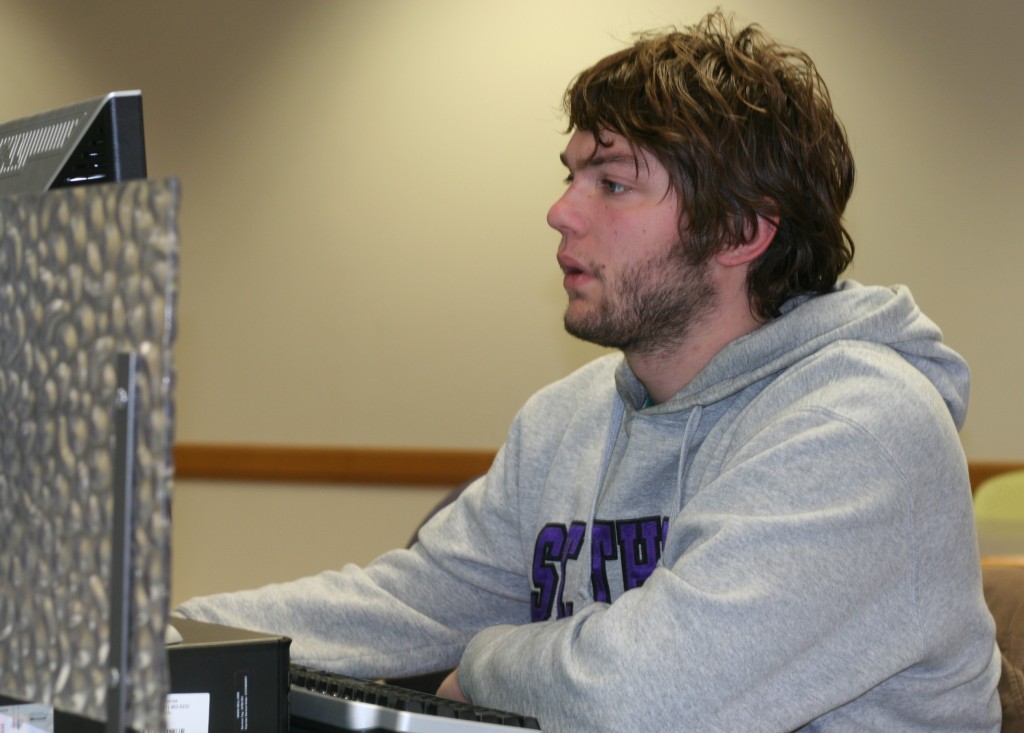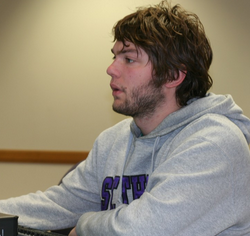Some colleges across the country have started using online programs that recommend a course based on a student’s grades and intended major and how other students performed in the class.

But Michael Jordan, associate vice president for undergraduate studies and academic advisement, said St. Thomas would probably not use such a system.
“Right now we have the degree evaluation that tells you very clearly what your set of course requirements might be based on what you have declared your major,” Jordan said. “So we do already have a very comprehensive analysis based on the particular major program that you wish to take and the previous courses you’ve already taken.”
He said he would caution students against thinking there’s an easier online alternative to the degree evaluation.
“I’d be skeptical that any outside system would be able to provide reliable information analogous to the degree evaluation,” Jordan said. “We have a person who works for our Registrar’s Office whose full-time job is to figure out the programming for degree evaluations.”
He added, “Our requirements change from time to time, and it would not be possible for an external source not using our information to know all of that.”
Sophomore Christian Larson said the Registrar’s Office has helped him prepare to register.
“I think the registrar does a pretty good job already,” Larson said. “It’s definitely beneficial.”
Senior Ian Wolf, who registered for classes in the fall, said he would probably not use an online course recommendation program.
“I think the only way to know how a class is going to be for me is to actually take it,” Wolf said. “I’m not one to worry about how different classes are going to affect me.”
Junior Christy Gries said that although she goes to Academic Counseling every semester, an online course recommendation program could be a good idea.
“I would like that, but I kind of feel that’s what Academic Counseling does,” Gries said. “I think that’d be a great tool for people who don’t have time to go Academic Counseling to maybe figure where they would stand in other classes.”
She added, “What we have is sufficient, but something like that would definitely make it better. And who doesn’t want to make registering for classes better?”
Student advising
Jordan said the required student-adviser meeting before course registration should help students figure out which classes to take. But Jordan said students don’t always use this resource.
“I think there is some frustration on the part of some advisers that students don’t actively draw upon their assistance,” he said. “I hear from advisers regularly who are concerned about students who have not made appointments or who don’t show up for their appointments.”
But Larson said he’ll be showing up to his meeting to plan out his classes until graduation.
“I’m going to have [my adviser] plan the rest of my classes all the way through my senior year, so I think that’ll definitely help,” he said.
Wolf said talking with different advisers is beneficial during the course registration process.
“The advising here definitely helps,” Wolf said. “We have all these kinds of people you can talk to, so if one person doesn’t have the answers, then you can fend them somewhere else.”
Jordan said students can depend on the advice from on-campus resources.
“I think the degree evaluation and the faculty adviser plus the support of our very fine staff of academic counselors is great,” Jordan said. “When students rely upon advice from their advisers and academic counselors they can be sure that the institution will do everything it can to stand behind the accuracy of that advice.”
Cynthia Johnson can be reached at john3175@stthomas.edu.

